- Home
- Wilkie Collins
Hide and Seek Page 30
Hide and Seek Read online
Page 30
(As he finished this paragraph, Mat dashed the letter down angrily on his knee, and cursed the writer of it with some of those gold-digger's imprecations which it had been his misfortune to hear but too often in the past days of his Californian wanderings. It was evidently only by placing considerable constraint upon himself, that he now refrained from crumpling up the letter and throwing it from him in disgust. However, he spread it out flat before him once more—looked first at one paragraph, then at another, but did not read them; hesitated—and then irritably turned over the leaf of paper before him, and began at a new page.)
"When I told Joshua generally what I had observed, and particularly what I myself had seen and heard on the evening in question, he seemed at last a little staggered, and sent for my niece, to insist on an explanation. On his repeating to her what I had mentioned to him, she flung her arms round his neck, looked first at me and then at him, burst out sobbing and crying, and so got from bad to worse, till she had a sort of fit. I was not at all sure that this might not be one of her tricks; but it frightened her father so that he forgot himself, and threw all the blame on me, and said my prudery and conspiring had tormented and frightened the poor girl out of her wits. After being insulted in this way, of course the only thing I could do was to leave the room, and let her have it all her own way with him.
"It was now the autumn, the middle of September; and I was at my wit's end to know what I ought to think and do next—when Mr. Carr left Dibbledean. He had been away once or twice before, in the summer, but only for a day or two at a time. On this occasion, my niece received a letter from him. He had never written to her when he was away in the summer; so I thought this looked like a longer absence than usual, and I determined to take advantage of it to try if I could not break off the intimacy between them, in case it went the length of any more letter-writing.
"I most solemnly declare, and could affirm on oath if necessary, that in spite of all I had seen and all I suspected for these many months, I had not the most distant idea of the wickedness that had really been committed. I thank God I was not well enough versed in the ways of sin to be as sharp in coming to the right conclusion as other women might have been in my situation. I only believed that the course she was taking might be fatal to her at some future day; and, acting on that belief, I thought myself justified in using any means in my power to stop her in time. I therefore resolved with myself that if Mr. Carr wrote again, she should get none of his letters; and I knew her passionate and proud disposition well enough to know that if she could once be brought to think herself neglected by him, she would break off all intercourse with him, if ever he came back, immediately.
"I thought myself perfectly justified, standing towards her as I did in the place of a mother, and having only her good at heart, in taking these measures. On that head my conscience is still quite easy. I cannot mention what the plan was that I now adopted, without seriously compromising a living person. All I can say is, that every letter from Mr. Carr to our house, passed into my hands only, and was by me committed to the flames unread. These letters were at first all for my niece; but towards the end of the year two came, at different intervals, directed to my brother. I distrusted the cunning of the writer and the weakness of Joshua; and I put both those letters into the fire, unread like the rest. After that, no more came; and Mr. Carr never returned to Jay's Cottage. In reference to this part of my narrative, therefore, I have only now to add, before proceeding to the miserable confession of our family dishonor, that I never afterwards saw, and only once heard of the man who tempted my niece to commit the deadly sin which was her ruin in this world, and will be her ruin in the next.
"I must return first, however, to what happened from my burning of the letters. When my niece found that week after week passed, and she never heard from Mr. Carr, she fretted about it much more than I had fancied she would. And Joshua unthinkingly made her worse by wondering, in her presence, at the long absence of the gentleman of Jay's Cottage. My brother was a man who could not abide his habits being broken in on. He had been in the habit of going on certain evenings to Mr. Carr's (and, I grieve to say, often taking his daughter with him) to fetch the London paper, to take back drawings of flowers, and to let my niece bring away new ones to copy. And now, he fidgeted, and was restless, and discontented (as much as so easy-tempered a man could be) at not taking his usual walks to Jay's Cottage. This, as I have said, made his daughter worse. She fretted and fretted, and cried in secret, as I could tell by her eyes, till she grew to be quite altered. Now and then, the angry fit that I had expected to see, came upon her; but it always went away again in a manner not at all natural to one of her passionate disposition. All this time, she led me as miserable a life as she could; provoking and thwarting and insulting me at every opportunity. I believe she suspected me, in the matter of the letters. But I had taken my measures so as to make discovery impossible; and I determined to wait, and be patient and persevering, and get the better of her and her wicked fancy for Mr. Carr, just as I had made up my mind to do.
"At last, as the winter drew on, she altered so much, and got such a strange look in her face, which never seemed to leave it, that Joshua became alarmed, and said he must send for the doctor. She seemed to be frightened out of her wits at the mere thought of it; and declared, quite passionately, all of a sudden, that she had no want of a doctor, and would see none and answer the questions of none—no! not even if her father himself insisted on it.
"This astonished me as well as Joshua; and when he asked me privately what I thought was the matter with her, I was obliged of course to tell him the truth, and say I believed that she was almost out of her mind with love for Mr. Carr. For the first time in his life, my brother flew into a violent rage with me. I suspect he was furious with his own conscience for reminding him, as it must have done then, how foolishly overindulgent he had been towards her, and how carelessly he had allowed her as well as himself, to get acquainted with a person out of her own station, whom it was not proper for either of them to know. I said nothing of this to him at the time: he was not fit to listen to it—and still less fit, even had I been willing to confide it to him, to hear what the plan was which I had adopted for working her cure.
"As the weeks went on, and she still fretted in secret, and still looked unlike herself, I began to doubt whether this very plan, from which I had hoped so much, would after all succeed. I was sorely distressed in my mind, at times, as to what I ought to do next; and began indeed to feel the difficulty getting too much for me, just when it was drawing on fast to its shocking and shameful end. We were then close upon Christmas time. Joshua had got his shop-bills well forward for sending out, and was gone to London on business, as was customary with him at this season of the year. I expected him back, as usual, a day or two before Christmas Day.
"For a little while past, I had noticed some change in my niece. Ever since my brother had talked about sending for the doctor, she had altered a little, in the way of going on more regularly with her work, and pretending (though she made but a bad pretense of it) that there was nothing ailed her; her object being, of course, to make her father easier about her in his mind. The change, however, to which I now refer, was of another sort, and only affected her manner towards me, and her manner of dressing herself. When we were alone together, now, I found her conduct quite altered. She spoke soft to me, and looked humble, and did what work I set her without idleness or murmuring; and once, even made as if she wanted to kiss me. But I was on my guard—suspecting that she wanted to entrap me, with her wheedling ways, into letting out something about Mr. Carr's having written, and my having burned his letters. It was at this time also, and a little before it, that I noticed the alteration in her dress. She fell into wearing her things in a slovenly way, and sitting at home in her shawl, on account of feeling cold, she said, when I reprimanded her for such untidyness.
"I don't know how long things might have lasted like this, or what the end might have been, if events ha
d gone on in their own way. But the dreadful truth made itself known at last suddenly, by a sort of accident. She had a quarrel with one of the other young women in the dressmaking-room, named Ellen Gough, about a certain disreputable friend of hers, one Jane Holdsworth, whom I had once employed, and had dismissed for impertinence and slatternly conduct. Ellen Gough having, it seems, been provoked past all bearing by something my niece said to her, came away to me in a passion, and in so many words told me the awful truth, that my brother's only daughter had disgraced herself and her family for ever. The horror and misery of that moment is present to me now, at this distance of time. The shock I then received struck me down at once; I never have recovered from it, and I never shall.
"In the first distraction of the moment, I must have done or said something down stairs, where I was, which must have warned the wretch in the room above that I had discovered her infamy. I remember going to her bed-chamber, and finding the door locked, and hearing her refuse to open it. After that, I must have fainted, for I found myself, I did not know how, in the work-room, and Ellen Gough giving me a bottle to smell to. With her help, I got into my own room; and there I fainted away dead again.
"When I came to, I went once more to my niece's bed-chamber. The door was now open; and there was a bit of paper on the looking-glass directed to my brother Joshua. She was gone from the honest house that her sin had defiled—gone from it for ever. She had written only a few scrawled wild lines to her father, but in them there was full acknowledgment of her crime and a confession that it was the villain Carr who had caused her to commit it. She said she was gone to take her shame from our doors. She entreated that no attempt might be made to trace her, for she would die rather than return to disgrace her family, and her father in his old age. After this came some lines, which seemed to have been added, on second thoughts, to what went before. I do not remember the exact words; but the sense referred, shamelessly enough as I thought, to the child that was afterwards born, and to her resolution, if it came into the world alive, to suffer all things for its sake.
"It was at first some relief to know that she was gone. The dreadful exposure and degradation that threatened us, seemed to be delayed at least by her absence. On questioning Ellen Gough, I found that the other two young women who worked under me, and who were most providentially absent on a Christmas visit to their friends, were not acquainted with my niece's infamous secret. Ellen had accidentally discovered it; and she had, therefore, been obliged to confess to Ellen, and put trust in her. Everybody else in the house had been as successfully deceived as I had been myself. When I heard this, I began to have some hope that our family disgrace might remain unknown in the town.
"I wrote to my brother, not telling him what had happened, but only begging him to come back instantly. It was the bitterest part of all the bitter misery I then suffered, to think of what I had now to tell Joshua, and of what dreadful extremities his daughter's ruin might drive him to. I strove hard to prepare myself for the time of coming trial; but what really took place was worse than my worst forebodings.
"When my brother heard the shocking news I had to tell, and saw the scrawled paper she had left for him, he spoke and acted as if he was out of his mind. It was only charitable, only fair to his previous character, to believe, as I then believed, that distress had actually driven him, for the time, out of his senses. He declared that he would go away instantly and search for her, and set others seeking for her too. He said, he even swore, that he would bring her back home the moment he found her; that he would succor her in her misery, and accept her penitence, and shelter her under his roof the same as ever, without so much as giving a thought to the scandal and disgrace that her infamous situation would inflict on her family. He even wrested Scripture from its true meaning to support him in what he said, and in what he was determined to do. And, worst of all, the moment he heard how it was that I had discovered his daughter's crime, he insisted that Ellen Gough should be turned out of the house: he declared, in such awful language as I had never believed it possible he could utter, that she should not sleep under his roof that night. It was hopeless to attempt to appease him. He put her out at the door with his own hand that very day. She was an excellent and a regular workwoman, but sullen and revengeful when her temper was once roused. By the next morning our disgrace was known all over Dibbledean.
"There was only one more degradation now to be dreaded; and that it sickened me to think of. I knew Joshua well enough to know that if he found the lost wretch he was going in search of, he would absolutely and certainly bring her home again. I had been born in our house at Dibbledean; my mother before me had been born there; our family had lived in the old place, honestly and reputably, without so much as a breath of ill report ever breathing over them, for generations and generations back. When I thought of this, and then thought of the bare possibility that an abandoned woman might soon be admitted, and a bastard child born, in the house where so many of my relations had lived virtuously and died righteously, I resolved that the day when she set her foot on our threshold, should be the day when I left my home and my birth place for ever.
"While I was in this mind, Joshua came to me—as determined in his way as I secretly was in mine—to ask if I had any suspicions about what direction she had taken. All the first inquiries after her that he had made in Dibbledean, had, it seems, given him no information whatever. I said I had no positive knowledge (which was strictly true), but told him I suspected she was gone to London. He asked why? I answered, because I believed she was gone to look after Mr. Carr; and said that I remembered his letter to her (the first and only one she received) had a London post-mark upon it. We could not find this letter at the time: the hiding-place she had for it, and for all the others she left behind her, was not discovered till years after, when the house was repaired for the people who bought our business. Joshua, however, having nothing better to guide himself by, and being resolved to begin seeking her at once, said my suspicion was a likely one; and went away to London by that night's coach, to see what he could do, and to get advice from his lawyers about how to trace her.
"This, which I have been just relating, is the only part of my conduct, in the time of our calamity, which I now think of with an uneasy conscience. When I told Joshua I suspected she was gone to London I was not telling him the truth. I knew nothing certainly about where she was gone; but I did assuredly suspect that she had turned her steps exactly in the contrary direction to London—that is to say, far out Bangbury way. She had been constantly asking all sorts of questions of Ellen Gough, who told me of it, about roads, and towns, and people in that distant part of the country: and this was my only reason for thinking she had taken herself away in that direction. Though it was but a matter of bare suspicion at the best, still I deceived my brother as to my real opinion when he asked it of me: and this was a sin which I now humbly and truly repent of. But the thought of helping him, by so little even as a likely guess, to bring our infamy home to our own doors, by actually bringing his degraded daughter back with him into my presence, in the face of the whole town—this thought, I say, was too much for me. I believed that the day when she crossed our threshold again would be the day of my death, as well as the day of my farewell to home; and under that conviction I concealed from Joshua what my real opinion was.
"I deserved to suffer for this; and I did suffer for it.
"Two or three days after the lonely Christmas Day that I passed in utter solitude at our house in Dibbledean, I received a letter from Joshua's lawyer in London, telling me to come up and see my brother immediately, for he was taken dangerously ill. In the course of his inquiries (which he would pursue himself, although the lawyers, who knew better what ought to be done, were doing their utmost to help him), he had been misled by some false information, and had been robbed and ill-used in some place near the river, and then turned out at night in a storm of snow and sleet. It is useless now to write about what I suffered from this fresh blow, or to speak of the
awful time I passed by his bed-side in London. Let it be enough to say, that he escaped out of the very jaws of death; and that it was the end of February before he was well enough to be taken home to Dibbledean.
"He soon got better in his own air—better as to his body, but his mind was in a sad way. Every morning he used to ask if any news of Mary had come? and when he heard there was none, he used to sigh, and then hardly say another word, or so much as hold up his head, for the rest of the day. At one time, he showed a little anxiety now and then about a letter reaching its destination, and being duly received; peevishly refusing to mention to me even so much as the address on it. But I guessed who it had been sent to easily enough, when his lawyers told me that he had written it in London, and had mentioned to them that it was going to some place beyond the seas. He soon seemed to forget this though, and to forget everything, except his regular question about Mary, which he sometimes repeated in his dazed condition, even after I had broken it to him that she was dead.
"The news of her death came in the March month of the new year, 1828.
"All inquiries in London had failed up to that time in discovering the remotest trace of her. In Dibbledean we knew she could not be; and elsewhere Joshua was now in no state to search for her himself; or to have any clear notions of instructing others in what direction to make inquiries for him. But in this month of March, I saw in the Bangbury paper (which circulates in our county besides its own) an advertisement calling on the friends of a young woman who had just died and left behind her an infant, to come forward and identify the body, and take some steps in respect to the child. The description was very full and particular, and did not admit of a doubt, to any one that knew her as well as I did, that the young woman referred to was my guilty and miserable niece. My brother was in no condition to be spoken to in this difficulty; so I determined to act for myself. I sent by a person I could depend upon, money enough to bury her decently in Bangbury churchyard, putting no name or date to my letter. There was no law to oblige me to do more, and more I was determined not to do. As to the child, that was the offspring of her sin; it was the infamous father's business to support and own it, and not mine.

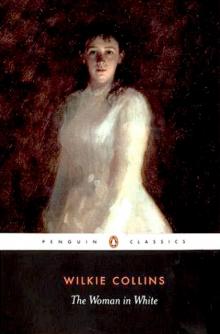 The Woman in White
The Woman in White The Queen of Hearts
The Queen of Hearts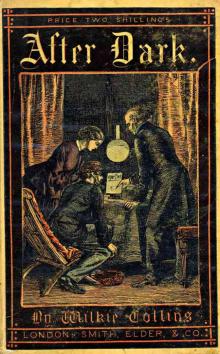 Miss Jeromette and the Clergyman
Miss Jeromette and the Clergyman Man and Wife
Man and Wife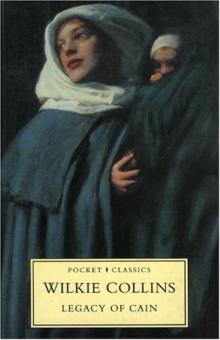 The Legacy of Cain
The Legacy of Cain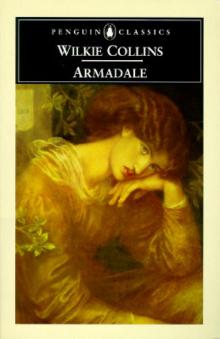 Armadale
Armadale The Frozen Deep
The Frozen Deep John Jago's Ghost or the Dead Alive
John Jago's Ghost or the Dead Alive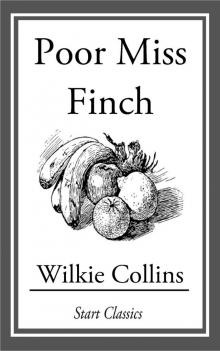 Poor Miss Finch
Poor Miss Finch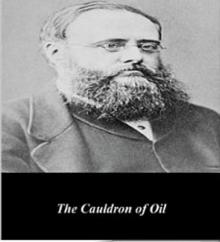 The Cauldron of Oil: A Case Worth Looking At
The Cauldron of Oil: A Case Worth Looking At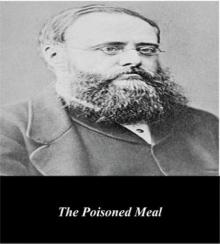 The Poisoned Meal
The Poisoned Meal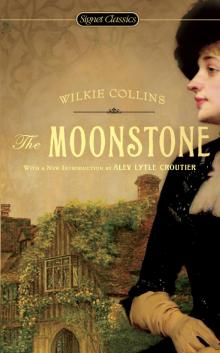 The Moonstone
The Moonstone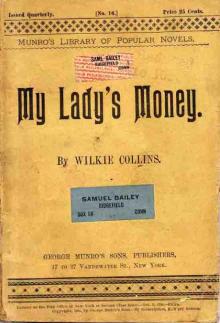 My Lady's Money
My Lady's Money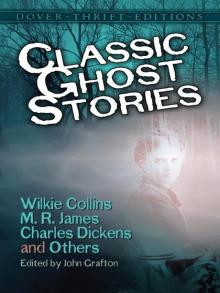 Classic Ghost Stories
Classic Ghost Stories Jezebel's Daughter
Jezebel's Daughter The Devil's Spectacles
The Devil's Spectacles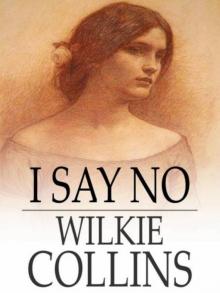 I Say No
I Say No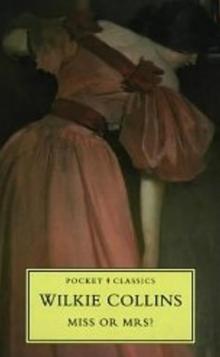 Miss or Mrs.?
Miss or Mrs.?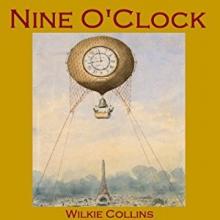 Nine O'Clock
Nine O'Clock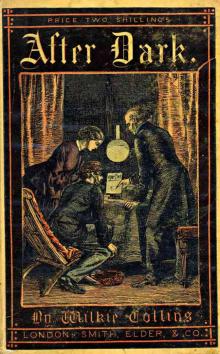 The Lawyer's Story of a Stolen Letter
The Lawyer's Story of a Stolen Letter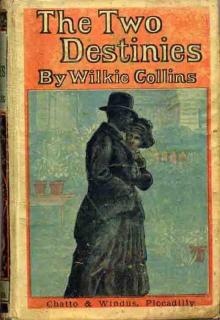 The Two Destinies
The Two Destinies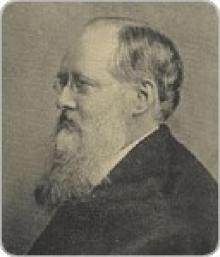 Mr. Percy and the Prophet
Mr. Percy and the Prophet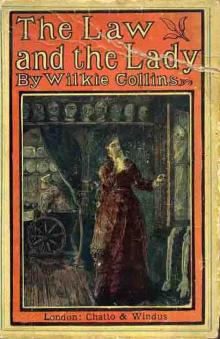 The Law and the Lady
The Law and the Lady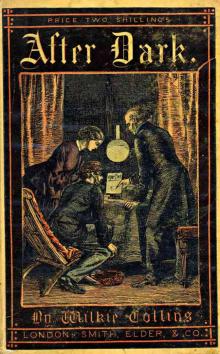 The Nun's Story of Gabriel's Marriage
The Nun's Story of Gabriel's Marriage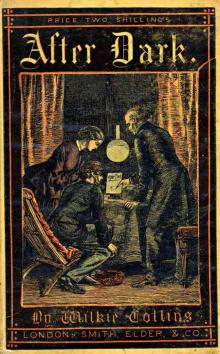 After Dark
After Dark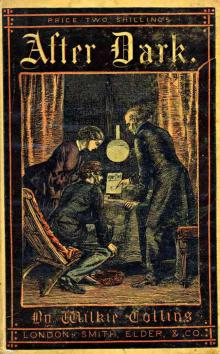 Mr. Captain and the Nymph
Mr. Captain and the Nymph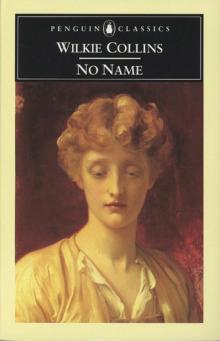 No Name
No Name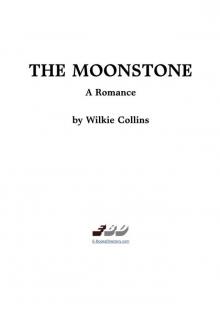 The Moonstone (Penguin Classics)
The Moonstone (Penguin Classics) Antonina
Antonina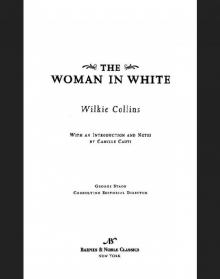 Woman in White (Barnes & Noble Classics Series)
Woman in White (Barnes & Noble Classics Series)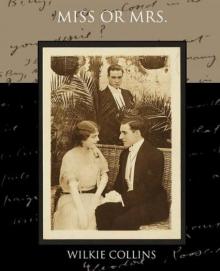 Miss or Mrs
Miss or Mrs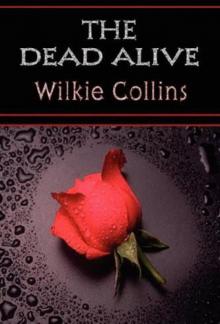 The Dead Alive
The Dead Alive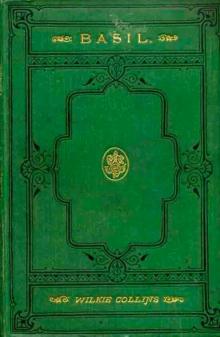 Basil
Basil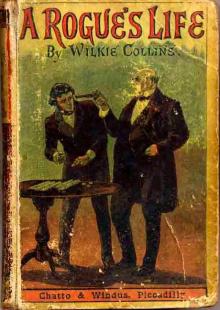 A Rogue's Life
A Rogue's Life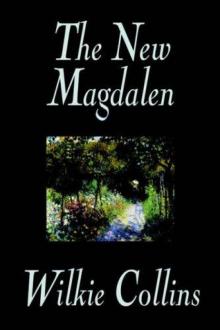 The New Magdalen
The New Magdalen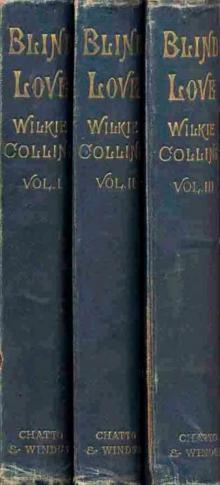 Blind Love
Blind Love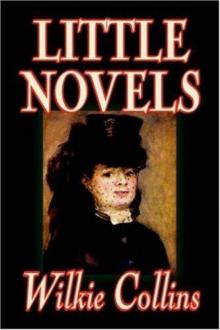 Little Novels
Little Novels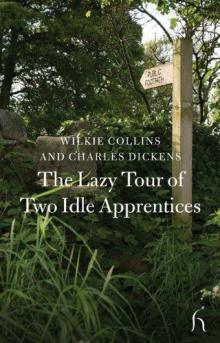 The Lazy Tour of Two Idle Apprentices
The Lazy Tour of Two Idle Apprentices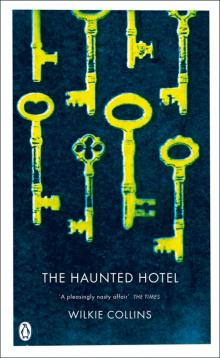 The Haunted Hotel
The Haunted Hotel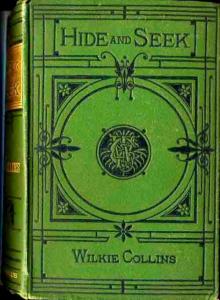 Hide and Seek
Hide and Seek